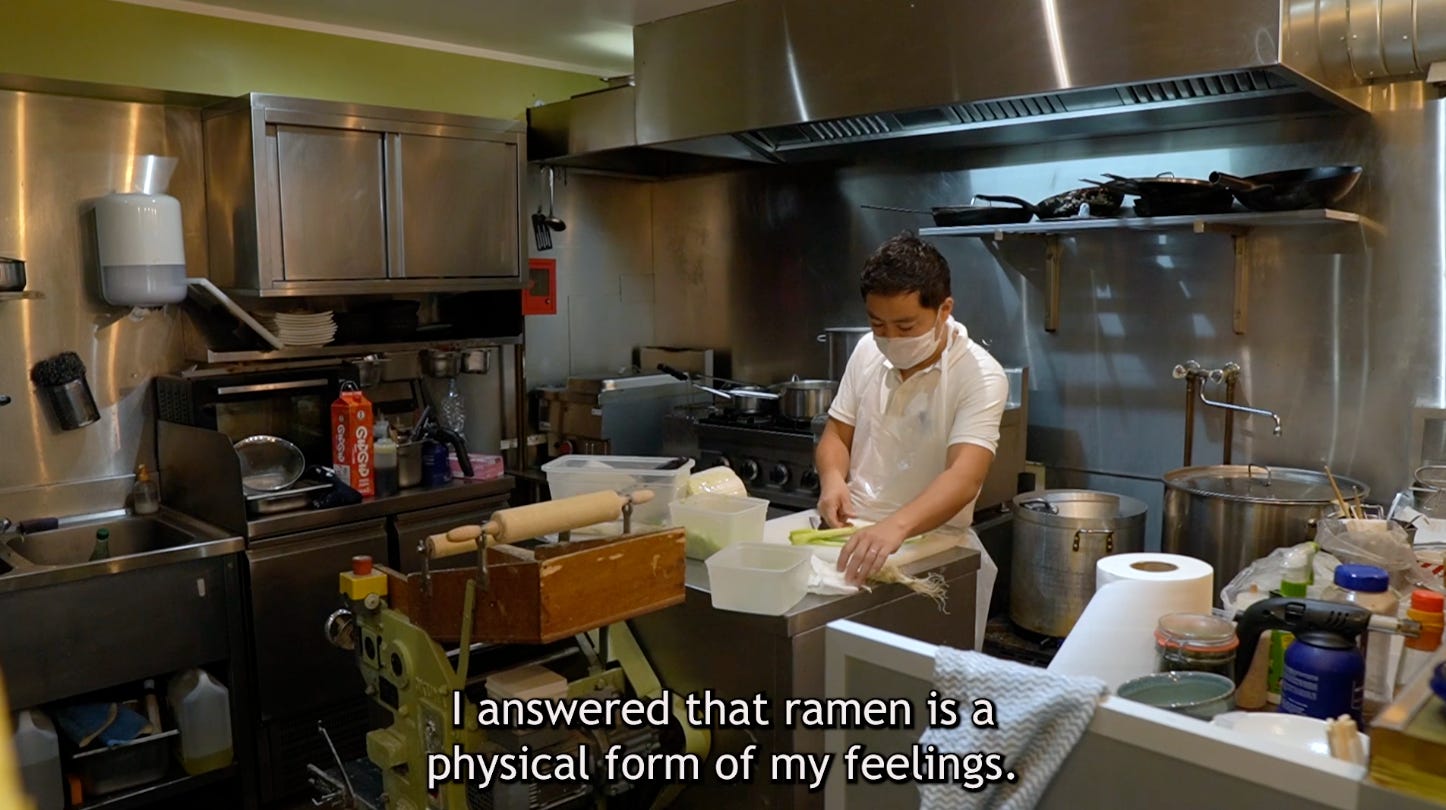"A cup of ramen is a piece of art"
Getting to know Ikko
If you go to Nice’s old town, down some stone steps, and into a narrow alley, you’ll find one of the most dedicated people in the city.
In the summer, sweat drips from his brow and in the winter the line for his restaurant snakes out the door. Every day that Ikko Ramen is open – which is most of them – you’ll find Ikko Shikata there with a whisk in one hand and a blow torch in the other.
His wife Ayako manages the lunch service and on Wednesdays, when there’s no school in France, you’ll find his son and daughter placing wooden spoons on top of firetruck red napkins.
I first met Ikko through my husband Mohamed who worked with him in the kitchen of a different ramen restaurant before Ikko opened his own place.
I would see Ikko every month or so when we’d come to his restaurant and order the Abuli ramen, his signature dish finished with black pepper and a lick from the flame of a blow torch.
We always came up to the counter and made some pleasant small talk – usually along the along the lines of this:
– Ça va, Ikko?
All good, Ikko?
– Oui, ça va! Toujours ici. Il y’a beaucoup de monde aujourd’hui.
Yep, all fine! Still here. There’s a lot of people today.
– Oui, c’est vrai. Parce qu’il fait froid. Bon courage! Yes, that’s true. Because it’s cold out. Good luck!
Merci! Thanks!
Then we’d sit and ask the server if we could get some miso in our ramen (because the chef knows us!), slurp down a bowl of delicious soup, and be on our way.
The summer of 2020 in France was weird. The mayor of Nice caused a small scandal when he organized a giant dance party in the street to celebrate the city’s reopening after three months of lockdown. Restaurants could only seat customers according to complex rules. Mohamed and I had just started working together in video but we didn’t have any clients. Ikko was selling his ramen to-go and things were a bit slower than usual. When we asked if we could interview him for a video, he agreed.
A week later, we showed up at 9 a.m. to watch him make noodles for the day – I learned that most ramen restaurants in Japan buy them pre-made – and start his soup base. He chopped spring onions and sliced his marinated chashu pork, and just before the lunch service, we sat down for a quick interview.
Another Japanese friend who spoke English came with us to interpret on the shoot day, but it wasn’t until I got a written translation of the interview a few weeks later that the language barrier was truly broken. Speaking in Japanese, Ikko’s full personality came into view. I learned that his parents were running from a business deal gone wrong when they fled from Kyoto to Yokohama, a port city near Tokyo. That’s where they opened a ramen restaurant and by helping them, Ikko found his passion in life.
“For the ordinary person, ramen is probably just ramen. But for me, a cup of ramen itself is a piece of art.” – Ikko Shikata
This video was never published and will likely reside on my Vimeo account forever, yet it holds a special place in my heart. It gave me a window into the life of someone I saw regularly but didn’t know at all and underscored the importance of letting someone tell their story in their own language.
This video was the catalyst that made me realize I love storytelling about good food and the people who make it, which has since become the cornerstone of my work for Eater, Insider, and BBC. This was also the first video Mohamed and I filmed together when we shared one camera and the work itself was the only payment for the time spent – well, that and a bowl of really good ramen.
If you’re ever in Nice, you can find Ikko Ramen at 5 Rue du Moulin.






Food as always interesting stories behind! Food is always a good excuse to connect people and share cultures.
Love the video and his ramen! Who would have thought the reason why he chose Nice? Piece of art!